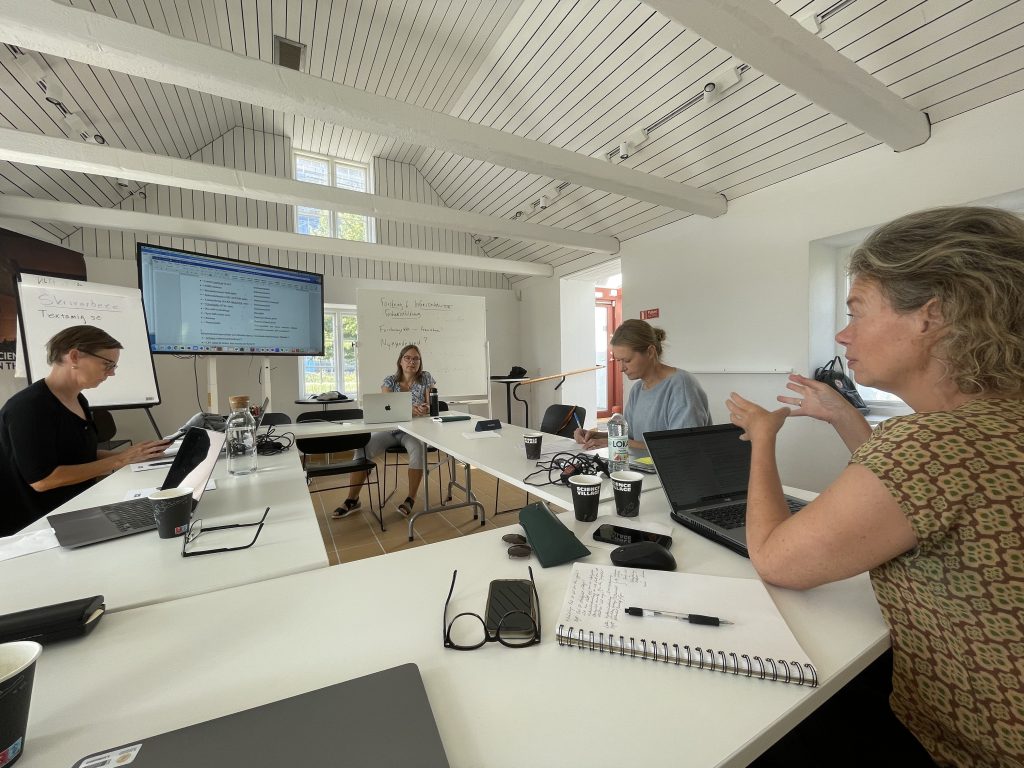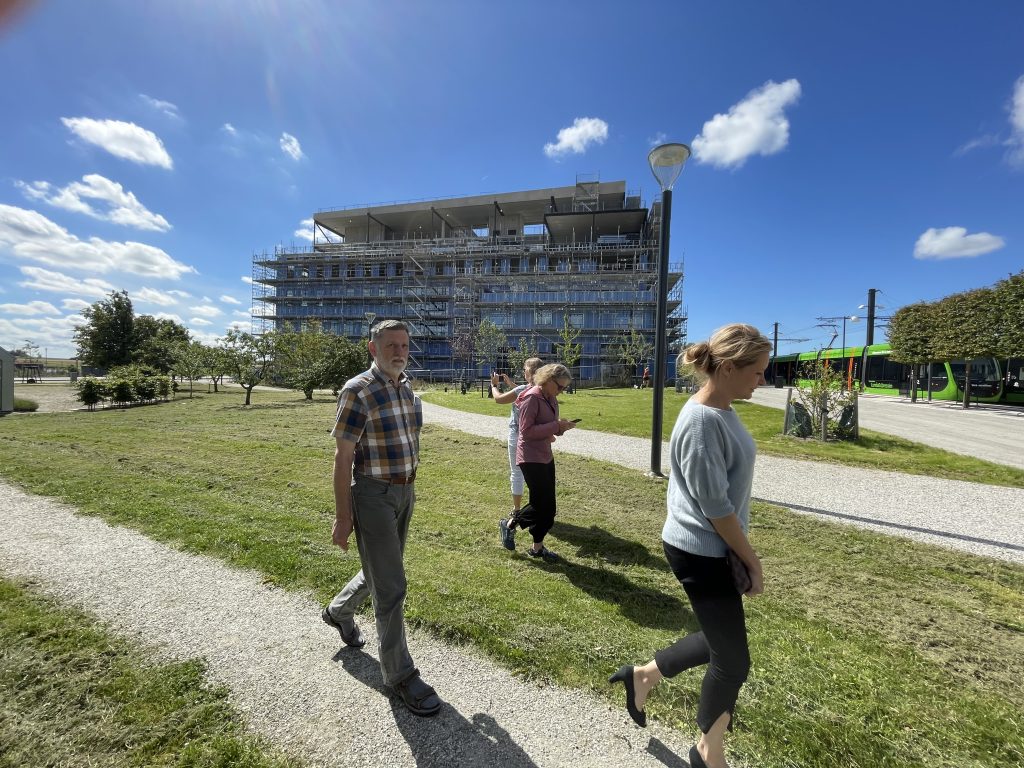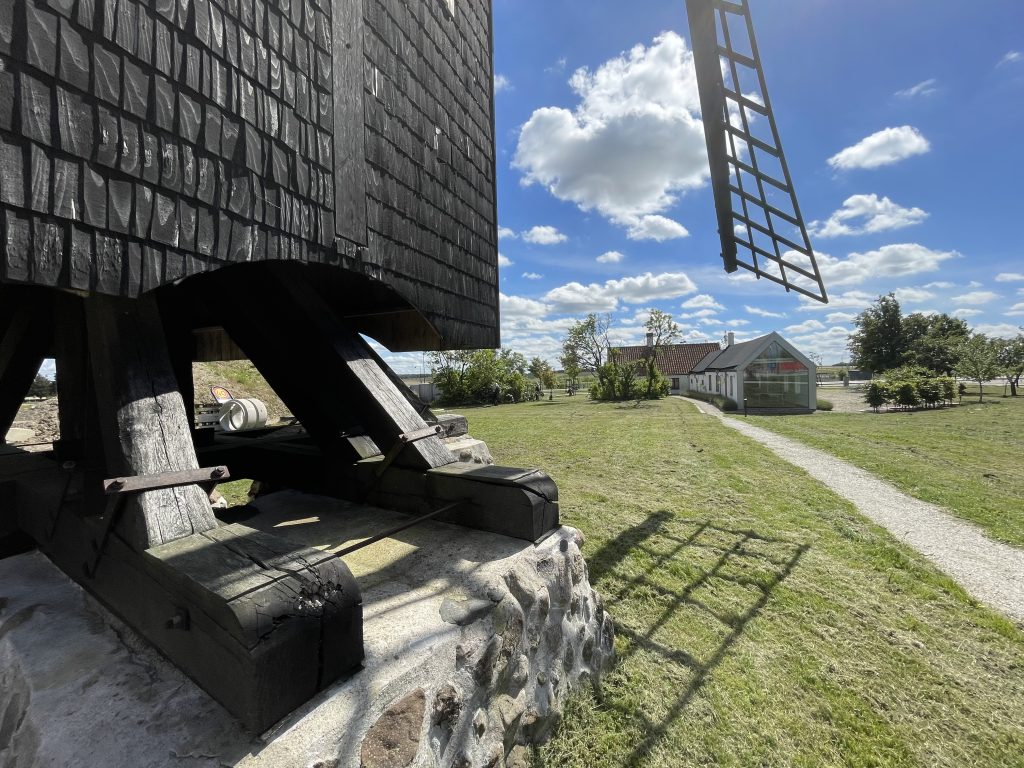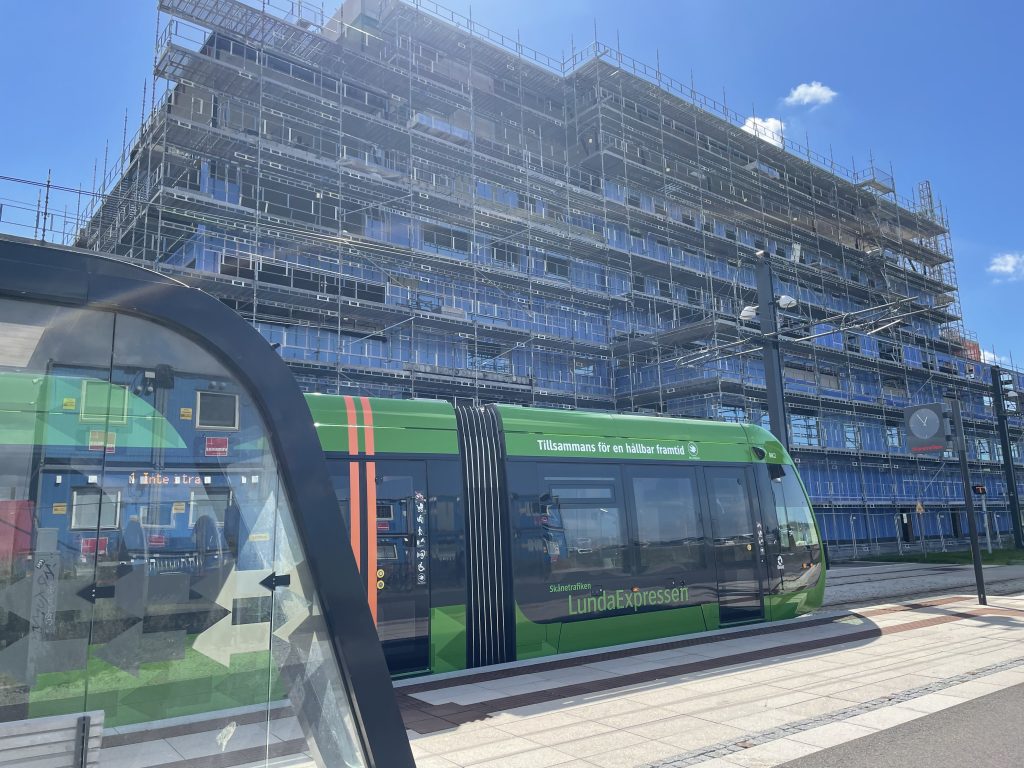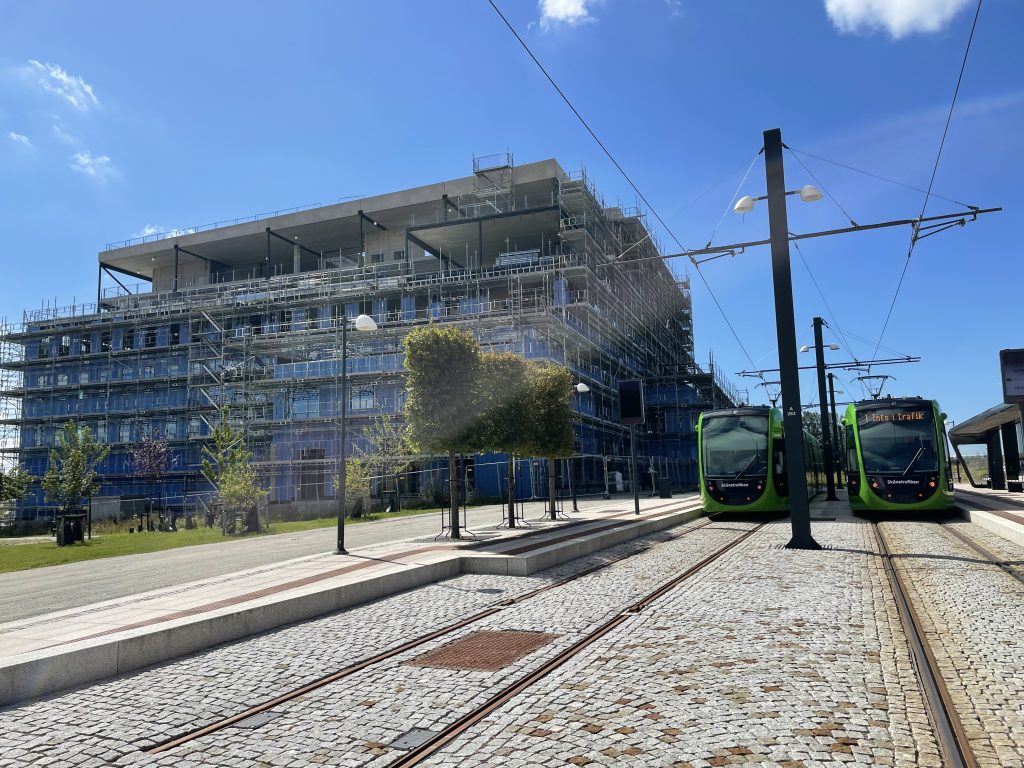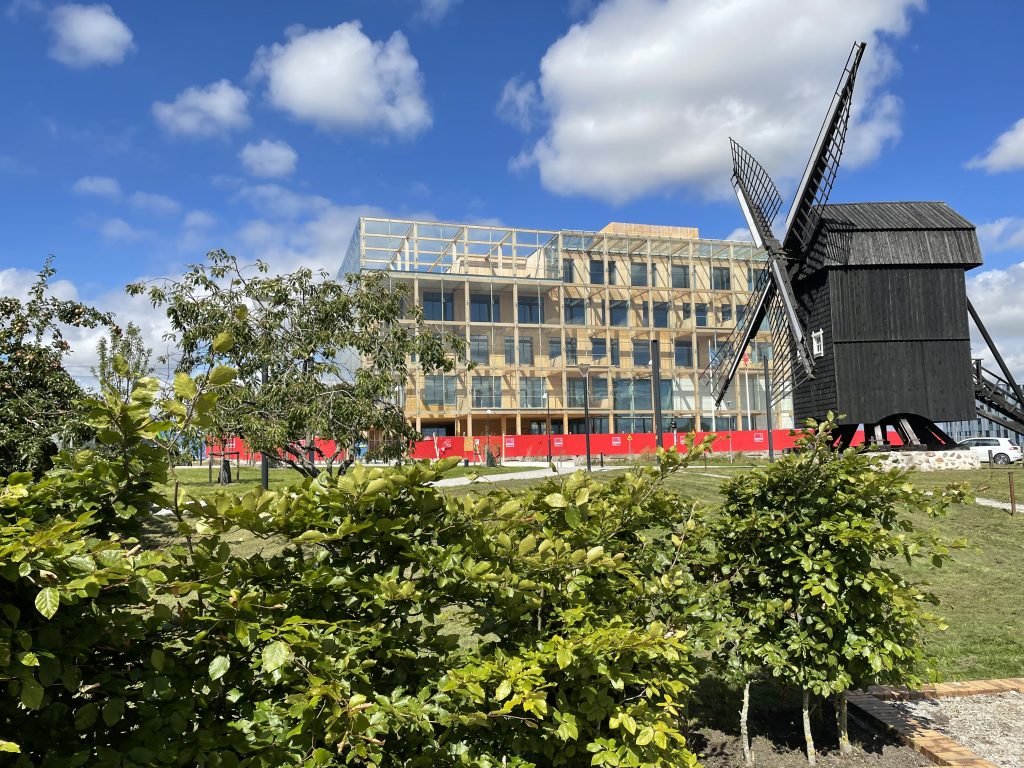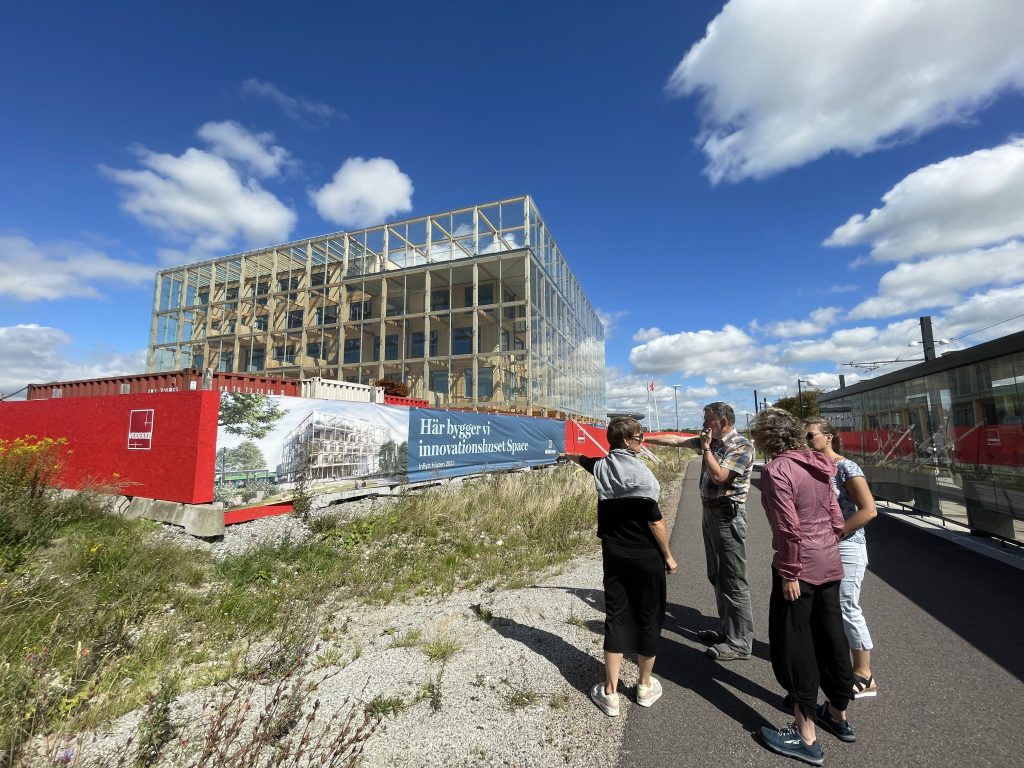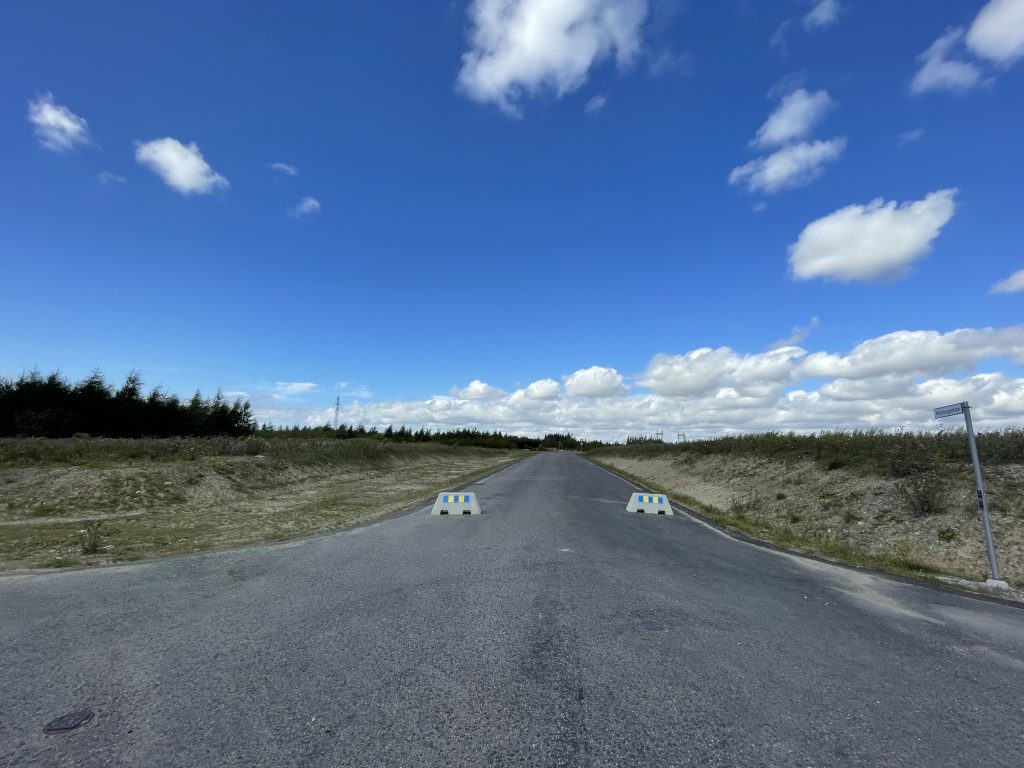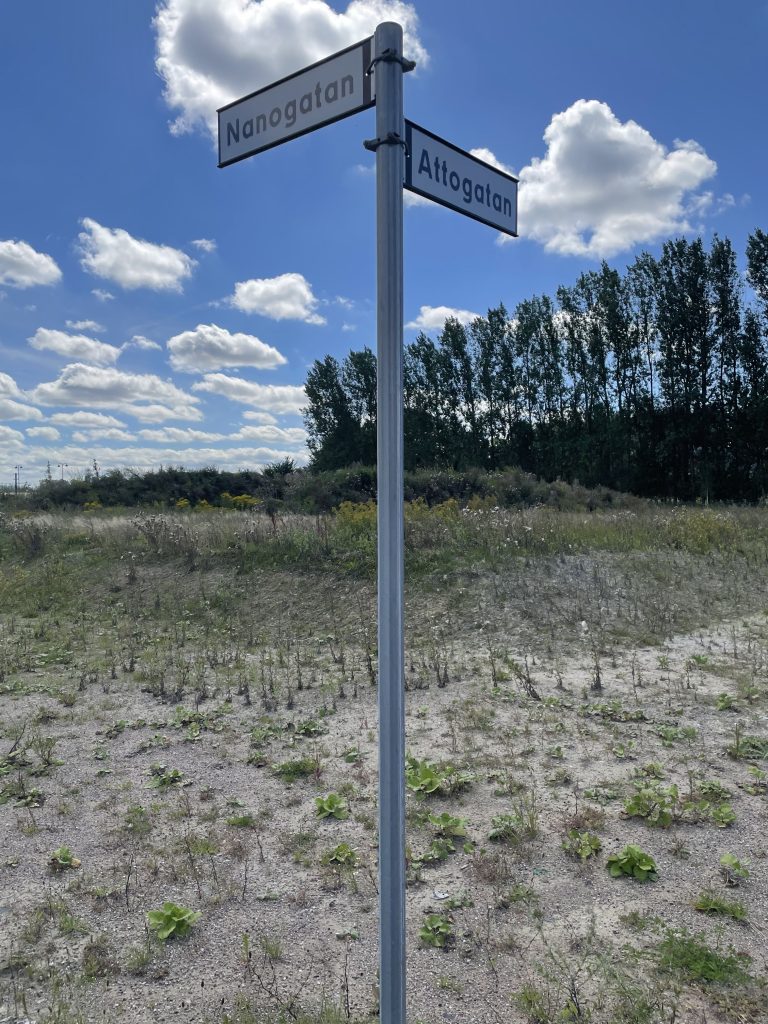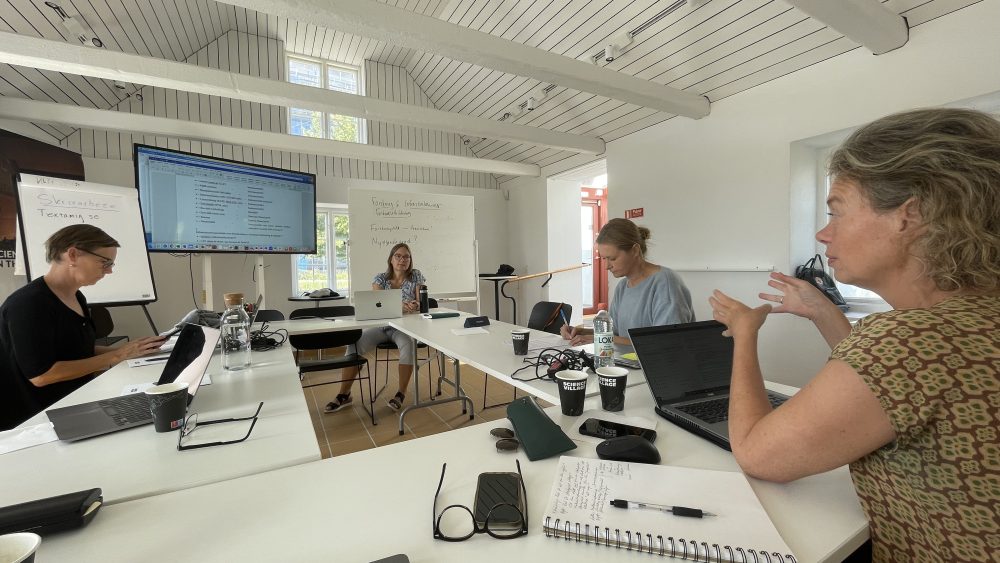In mid-August, the entire project team reunited for an intensive full-day session at the old Möllegården in Science Village. Despite the shock that the summer break had already ended, the team had their full focus on the autumn work with a packed agenda for Stage 2. The group structured all the needed steps to be taken this autumn in order to submit a scope proposal in October, followed by a premises program proposal in December. The different parts of this work process are interwoven into a complex whole, but together the group managed to bring clarity to the direction ahead. Below is an overview of the project team’s planned activities for the autumn and the path forward.
The Work Process
After the concluded design-driven dialogues this spring, the results have been summarized in a final report that was recently presented to the operational steering group. An important outcome from the dialogues is the initiation of the following focus areas:
- Teaching, study environments, and teaching support – managed through a focus group (“GU-group”).
- Student environments.
- Research, doctoral education, infrastructures, and research support.
- Shared support functions and security issues.
- Office environments and meeting spaces.
The approach for gathering information for the different focus areas will vary. The project group will organize workshops for some focus areas and in-depth interviews with specific people for others. For the “Teaching, Student Environments, and Teaching Support” area, a specific group has been formed, known as the “GU-group”. A technology network has also been initiated with participants from the entire organization. This network meets monthly to discuss topics related to laboratory equipment, safety, updates, and more, as well as to get to know each other across institutional boundaries.
The most pressing item on the project group’s agenda is to present an operational scope proposal by October 17th. This process is currently underway. The scope proposal will encompass areas such as personnel, learning environments, student environments, research environments, and infrastructure.
Extra support
There’s a lot to be completed during these months. To support the project group, White Architects have been engaged to assist in developing operational descriptions and the detailed premises programme.
Simultaneously, as this work is ongoing, the operational project group, supported by experts from LTH and N’s office, is leading the development of cost estimates, test schedules, evaluating the utilization of existing premises (occupancy rates), overseeing infrastructure, and future investment needs, as well as compiling an equipment list.
The project group will communicate the progress regularly through posts on the LU in Science Village blog as well as through information sessions for the organization (more information will be provided soon). If you have questions or wish to contribute in any way, please don’t hesitate to contact the project group at: lusciencevillage@science.lu.se.
Pictures from Möllegården and Science Village:
